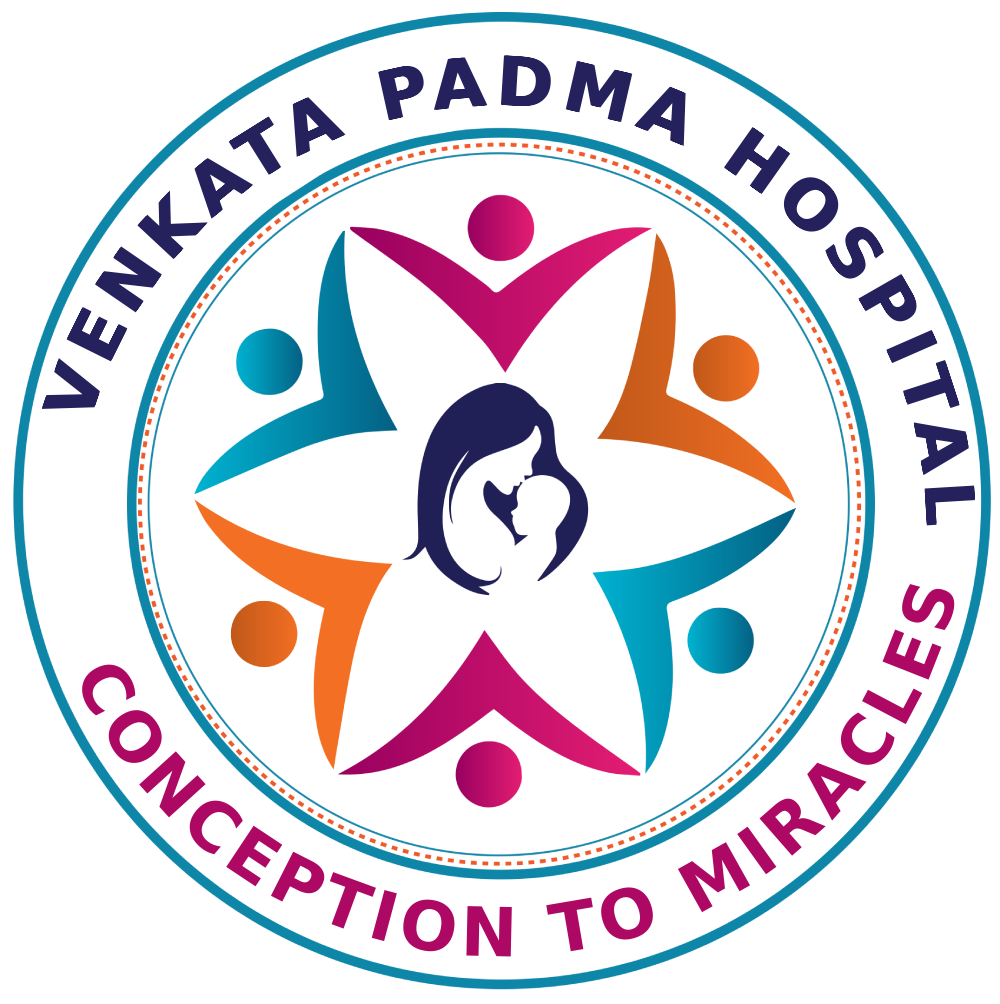- Venkata Padma Hospital
- 0 Comments
Pregnancy Care at Venkata Padma Hospital
Pregnancy is a transformative journey, both physically and hormonally. Ensuring proper nutrition during this period is essential to support your well-being and the healthy development of your growing baby. At Venkata Padma Hospital, we understand the significance of making informed food choices, and we’re here to guide you on your pregnancy nutrition journey
Balanced Diet for Pregnancy
A healthy and balanced diet is the foundation of a successful pregnancy. Your food choices directly impact not only your own health but also provide vital nourishment to your baby. To maintain a healthy pregnancy, consider the following dietary recommendations:
Caloric Intake:
You’ll need approximately 300 extra calories per day to support your pregnancy. These calories should be sourced from a well-balanced diet rich in protein, fruits, vegetables, and whole grains. While satisfying your cravings, aim to minimize the consumption of sweets and fats. This balanced approach can also help alleviate common pregnancy symptoms like nausea and constipation.
Hydration:
Staying properly hydrated is equally crucial during pregnancy. Follow these guidelines for fluid intake:
– Aim for 8 to 10 large glasses of water daily, in addition to the fluids in juices and soups. Consult your healthcare provider regarding caffeine and artificial sweetener consumption.
– Strictly avoid alcohol throughout your pregnancy journey.
Nutrient-Rich Foods for Pregnancy
Your diet should include nutrient-rich foods that benefit both your health and your baby’s development:
– Vegetables: Opt for carrots, spinach, cooked greens, sweet potatoes, pumpkin, tomatoes, and red sweet peppers. These choices are rich in vitamin A and potassium.
– Fruits: Incorporate prunes, bananas, apricots, oranges, and red or pink grapefruit into your diet for their potassium content.
– Dairy: Choose fat-free or low-fat yogurt, skim or 1% milk, and soymilk. These options provide essential calcium, potassium, and vitamins A and D.
– Grains: Consider ready-to-eat cereals and cooked cereals for their iron and folic acid content.
– Proteins: Include beans, peas, nuts, seeds, and salmon in your diet to ensure an adequate protein intake.
Foods to Avoid During Pregnancy
Certain foods should be avoided during pregnancy to minimize potential risks:
– Steer clear of unpasteurized milk and foods made with unpasteurized milk.
– Avoid consuming raw and undercooked seafood, eggs, and meat.
– Refrigerated meat spreads and refrigerated smoked seafood should also be omitted from your diet.
Safe Food Handling Practices
Adhering to safe food handling practices is vital for your health and that of your baby:
– Wash: Thoroughly rinse all raw produce under running tap water before eating, cutting, or cooking.
– Clean: Maintain hygiene by washing your hands, knives, countertops, and cutting boards after handling and preparing uncooked foods.
– Cook: Ensure poultry is cooked to a safe internal temperature, verified with a food thermometer.
– Chill: Promptly refrigerate all perishable foods to prevent bacterial growth.
Prenatal Vitamin and Mineral Supplements
Most healthcare providers recommend prenatal supplements before conception or shortly after to fulfill your nutritional needs. However, it’s important to note that supplements should complement, not replace, a healthy diet.
The Significance of Folic Acid
Folic acid is a crucial nutrient for pregnant women. It is recommended that all women of childbearing age consume 400 micrograms (0.4 mg) of folic acid daily. Folic acid can be found in:
– Some green leafy vegetables
– Most berries, nuts, beans, citrus fruits, and fortified breakfast cereals
– Some vitamin supplements
Folic acid plays a pivotal role in reducing the risk of neural tube defects, which affect the brain and spinal cord. These defects can lead to various degrees of paralysis, incontinence, and sometimes intellectual disability.
To maximize its benefits, start taking folic acid before conception and continue throughout your pregnancy. Consult your healthcare provider for the appropriate folic acid dosage tailored to your individual needs. Some women, such as those taking anti-epileptic drugs, may require higher doses to prevent neural tube defects and should seek advice from their doctor when considering conception.
Expert Recommendations - When to Seek Medical Care

At Venkata Padma Hospital, we are dedicated to your health and the well-being of your baby. Our expert healthcare team is here to support you on your pregnancy journey, ensuring that you receive the best care and guidance every step of the way. If you have any questions or need further assistance, please don’t hesitate to reach out to us.
– Dr.Padma Kumari Gynecologist & Obstetrician in Venkata Padma Hospital

